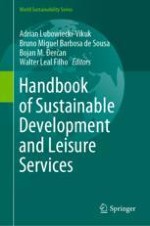This book reviews empirical and theoretical research on sustainable development in the context of leisure management for communities. Although leading research centers are pursuing interdisciplinary research on leisure in the context of sustainable development, there are still few papers that holistically address the current challenges in this area. In addition, demographic changes have made the promotion of a healthy lifestyle essential. Doing so requires responsible behavior on the part of various stakeholders in this market.
This book fills an important gap in the literature and gathers contributions from an interdisciplinary and international team of authors, whose fields of expertise include human geography, management, intersections of sustainability and leisure, behavioral psychology and tourism.
